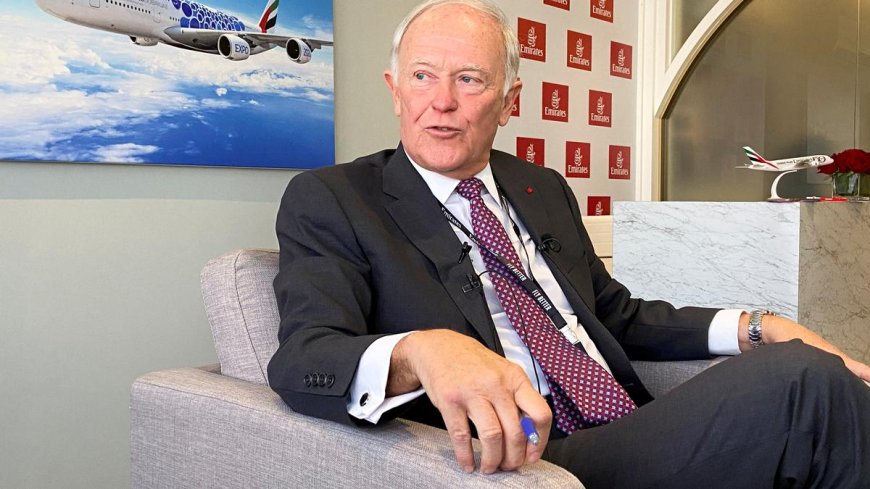India’s restrictions on foreign airlines not “compatible” with hub ambitions: Emirates Airline President

India’s Restrictions on Foreign Airlines Not “Compatible” with Hub Ambitions: Emirates Airline President
Breaking News, Daily Updates & Exclusive Stories - asarkari
In a recent statement that raises serious questions regarding India's aviation sector, the President of Emirates Airline, Tim Clark, expressed concerns over the country's restrictions on foreign airlines. He asserted that these limitations are not "compatible" with India's ambitions to establish itself as a global aviation hub.
Significance of the Statement
Clark remarked that “India no longer a significant market for Emirates due to the restrictions on seat capacity.” This sentiment signals a growing frustration among international airlines, who see immense potential in India's travel market but are hindered by regulatory constraints. Emirates, a key player in international aviation, operates numerous flights across the globe, but their presence in India has diminished due to these limitations.
Understanding the Restrictions
The Indian government has imposed strict regulations on the number of international seats airlines can offer, a measure aimed at protecting domestic carriers. While this strategy may seem beneficial to local airlines, it inadvertently suppresses competition and limits travel choices for passengers. With a rapidly growing middle class in India, the potential for international carriers is significant; however, the restrictions are creating a market that is increasingly unappealing to foreign investors.
The Impact on Travel and Economy
The repercussions of these restrictions extend beyond mere inconvenience for travelers. They also hinder the growth of the Indian economy, particularly in sectors reliant on tourism and global business travel. The inability of Emirates and other foreign airlines to operate at full capacity leads to missed opportunities in collaboration, trade, and foreign investment.
The Future of Aviation in India
For India to realize its ambition of becoming a major hub for international flights, a reevaluation of these policies is essential. Collaborative approaches that strike a balance between protecting domestic interests and fostering a competitive environment for international carriers will be crucial. The government must look to successful models in other countries that allow foreign airlines to operate freely while still supporting local airlines.
Conclusion
In conclusion, the statement by Emirates' President serves as a wake-up call for India's aviation policymakers. As Clark highlighted, restrictions on foreign airlines significantly undermine India's aspirations to become a global aviation leader. In a world that thrives on connectivity, reforming these regulations could unlock the potential for economic growth and enhanced international collaboration. For those interested in the evolving landscape of Indian aviation, continuous monitoring of these developments is recommended.
Stay tuned for more updates on aviation policy changes and economic impact by visiting asarkari.com.
Keywords:
India, Emirates Airline, aviation hub, foreign airlines, seat capacity restrictions, India's economy, international travel, airline regulations, travel industry, tourism growthWhat's Your Reaction?
 Like
0
Like
0
 Dislike
0
Dislike
0
 Love
0
Love
0
 Funny
0
Funny
0
 Angry
0
Angry
0
 Sad
0
Sad
0
 Wow
0
Wow
0








































